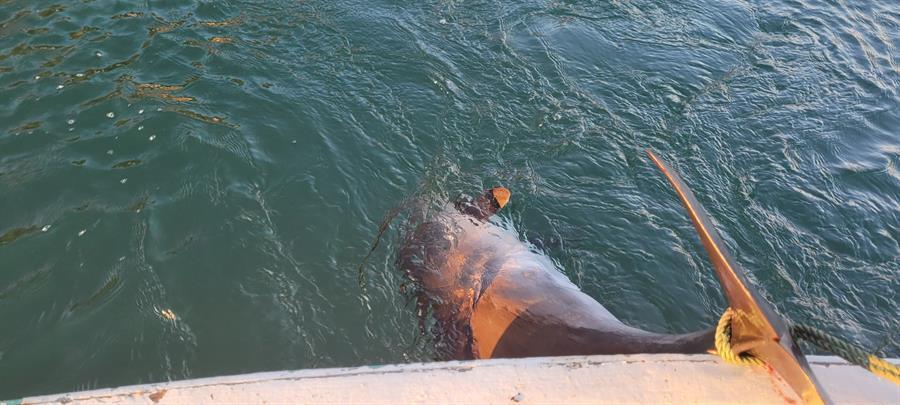
Turkey has recorded a rise in strandings across its Black Sea coasts since the beginning of the Russian invasion on Feb. 24, as some scientists said the Russia-Ukraine war might have caused the rise in dolphin deaths in the Black Sea.
The Turkish Marine Research Foundation (TÜDAV) announced recently that more than 80 of these mammals were found dead across the country’s western Black Sea, calling the situation “an extraordinary increase.”
According to a report by the British daily Guardian, researchers believe that heightened noise pollution in the northern Black Sea caused by around 20 Russian navy vessels and ongoing military activities might have driven the dolphins south to the Turkish and Bulgarian coasts.
“There, the animals are being stranded or caught in fishing nets in unusually high numbers,” the daily wrote on May 11.
Speaking to the Guardian, Bayram Öztürk, the chair of TÜDAV, agreed with the possibility of “acoustic trauma” in the dolphin deaths across Turkey’s shores.
Half of the dolphins were killed after getting tangled in fishing nets. However, “the fate of the others is still an unanswered question,” Öztürk said, as no signs of entanglement or gunshot wounds could be found on the carcasses.
“Acoustic trauma is one of the possibilities that comes to mind. We don’t have evidence on what low-frequency sonar may cause in the Black Sea because we have never seen this many ships, and this much noise for such an extended time, and science always demands proof.”
According to TÜDAV’s website, three dolphin species live in the Black Sea: the harbor porpoise, the common dolphin (Delphinus delphis) and the common bottlenose dolphin.
Uğur Özsandıkçı, an academic from the Sinop University, has also pointed out the Ukraine war.
“The number TÜDAV declared is higher than the previous years’ numbers. Ukraine war may be causing noise pollution in the sea,” Özsandıkçı told Demirören News Agency.
“So, the animals escape from this pollution and swim south,” he added.
Some 13 dolphins have been stranded in the Black Sea province of Sinop since February. “We are examining the dead bodies,” the academic noted.
Navies commonly use sonar to detect enemy submarines. “As marine mammals depend on sound for communication, the underwater noise can have serious, even fatal, effects on the animals,” the Guardian reported.
“There are dozens of ships in the Black Sea, but we don’t even know how often they use sonar,” Öztürk said.
One other academic ratiocinated the rise in deaths with the war.
“Permanent underwater noise may not kill the animals directly, but could still seriously disturb and harm them, as dolphins and other species may head for an unfamiliar territory to try to avoid it,” Pavel Gol’din, a researcher at Ukraine’s National Academy of Sciences, told the Guardian.
“It might be the cause of mass migration of fish and cetacean stocks to the south,” he added.
TÜDAV also made a call to Turkish authorities to analyze the effects of the war on the Black Sea.
In a statement published recently, TÜDAV said, “We suggest that a surveillance program to detect the effects of the war on the marine life should be started immediately.”
“The security of marine life, environment and nourishment in the Black Sea is under threat,” it said. “Turkey should take initiative on this issue.”